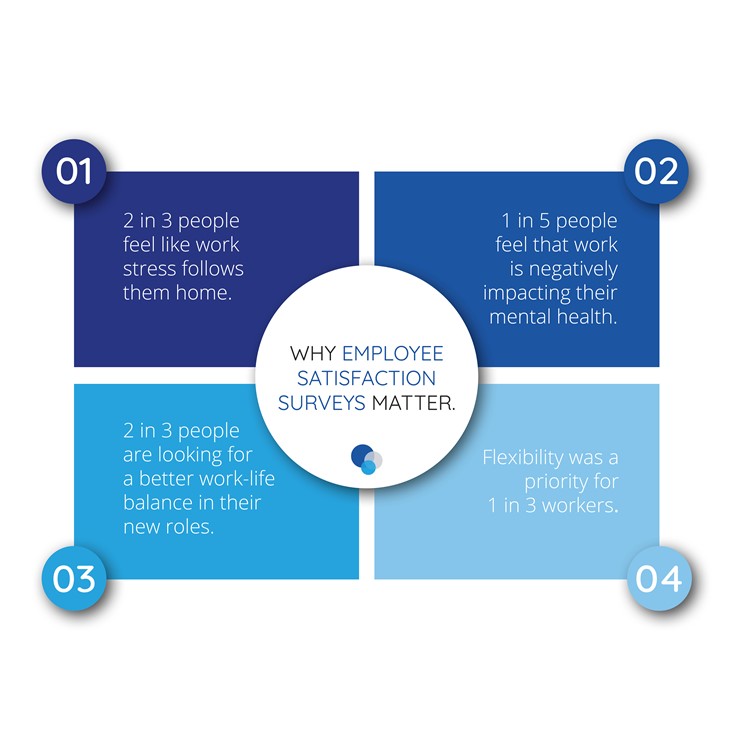Benefits of Employee Engagement Survey
Employee engagement surveys play a crucial role in understanding the satisfaction and motivation levels of employees within an organization. By conducting these surveys, companies can gain valuable insights into their workforce, identify areas of improvement, and enhance overall employee satisfaction. In this article, we will explore the numerous benefits of employee engagement surveys and how they contribute to a thriving and productive work environment.
Enhanced Employee Satisfaction
Employee engagement surveys provide a platform for employees to express their opinions and concerns openly. By actively involving employees in the decision-making process, organizations demonstrate their commitment to employee satisfaction. This fosters a sense of belonging and empowerment among employees, leading to higher job satisfaction levels.
Improved Communication and Collaboration
Engagement surveys encourage open and transparent communication between employees and management. Through the survey responses, organizations can identify communication gaps and address them effectively. By promoting a culture of open communication, employees feel more comfortable sharing their ideas, collaborating with colleagues, and contributing to the overall success of the organization.
Identification of Strengths and Weaknesses
An employee engagement survey provides valuable insights into the strengths and weaknesses of an organization. By analyzing the survey data, companies can identify areas where they excel and leverage those strengths to drive further growth. Simultaneously, it helps pinpoint areas where improvement is needed, allowing organizations to develop targeted strategies for enhancement.
Increased Employee Retention
Engaged employees are more likely to stay with an organization for the long term. By conducting regular engagement surveys, companies can identify factors that contribute to employee retention and take necessary actions to retain top talent. When employees feel valued and their opinions are heard, they are more inclined to remain committed to the organization, reducing turnover rates.
Enhanced Productivity and Performance
Employee engagement surveys pave the way for improved productivity and performance within an organization. By addressing employee concerns and providing necessary support, organizations can create an environment that fosters growth and development. Engaged employees are more motivated, enthusiastic, and committed to delivering their best work, resulting in increased productivity and overall performance.
Strengthened Organizational Culture
Engagement surveys contribute to the development and reinforcement of a positive organizational culture. By actively involving employees in decision-making processes and valuing their opinions, organizations create a culture of trust, respect, and inclusivity. This, in turn, enhances employee satisfaction, collaboration, and overall organizational success.

Employee engagement surveys are powerful tools that enable organizations to understand their workforce better and create a thriving work environment. By actively involving employees in decision-making processes, addressing their concerns, and fostering open communication, companies can enhance employee satisfaction, productivity, and overall success. Implementing regular employee engagement surveys should be a priority for organizations seeking to create a positive and engaging workplace.
Frequently Asked Questions
1. What is an employee engagement survey?
An employee engagement survey is a tool used by organizations to measure the level of engagement and satisfaction among their employees.
2. Why are employee engagement surveys important?
Employee engagement surveys help organizations understand the level of employee satisfaction, identify areas for improvement, and make informed decisions to enhance productivity and overall employee well-being.
3. What are the benefits of conducting employee engagement surveys?
The benefits of conducting employee engagement surveys include improved employee morale, increased productivity, reduced turnover rates, enhanced communication, and better alignment between employee and organizational goals.
4. How often should employee engagement surveys be conducted?
The frequency of conducting employee engagement surveys may vary depending on the organization’s needs, but it is generally recommended to conduct them annually or biannually to track progress and identify trends over time.
5. How can employee engagement surveys help in identifying areas for improvement?
Employee engagement surveys provide valuable insights into areas that may be causing dissatisfaction or disengagement among employees. By analyzing survey results, organizations can identify specific areas for improvement, such as communication, leadership, work-life balance, or career development.
6. Can employee engagement surveys help in reducing turnover rates?
Yes, employee engagement surveys can help in reducing turnover rates. By addressing the concerns and issues highlighted in the surveys, organizations can improve employee satisfaction, increase retention, and create a positive work environment.
7. How can employee engagement surveys contribute to better communication?
Employee engagement surveys provide a platform for employees to express their opinions and concerns openly. This feedback can help organizations identify communication gaps and implement strategies to improve internal communication channels.
8. Are employee engagement surveys confidential?
Yes, employee engagement surveys are typically confidential. This confidentiality encourages employees to provide honest feedback without fear of repercussions, leading to more accurate results.
9. Who should be involved in the employee engagement survey process?
The employee engagement survey process should involve all employees across different levels and departments within the organization. Involving employees in the survey design and implementation can also increase their engagement and ownership of the process.
10. How can organizations make the most out of employee engagement survey results?
To make the most out of employee engagement survey results, organizations should communicate the findings transparently, involve employees in action planning, set clear goals for improvement, and regularly track progress. It is also essential to address the identified issues promptly and provide feedback to employees on how their feedback is being utilized.




